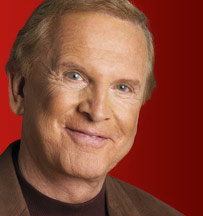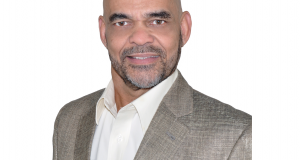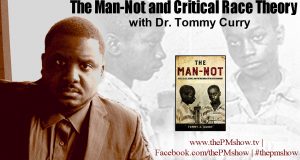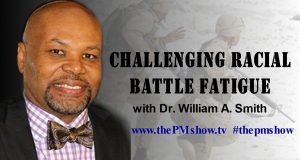
By Philippe SHOCK Matthews
We’ve all felt adversity sharpen our determination and bolster our strength; we’ve also felt it crumple us into surrender-even failure. Dr. Denis Waitley-psychologist, motivational speaker and the best-selling author-has spent his life studying why some thrive, some fold, and how everyone can learn to win when faced with tough challenges.
Doctor Waitley is well known for his audio programs and books, including The Psychology of Winning, Seeds of Greatness, Being the Best, The Winner’s Edge, and Empires of the Mind, as well as his keynote speaking engagements and expert in The Secret. He is also a consultant and the former chairman of psychology for the U.S. Olympic Committee’s Sports Medicine Council. However, Dr. Waitley didn’t grow up in a world of optimism and hope. Instead, he learned it and did so with such passion that living and teaching the message of triumph over negativity and failure became his life’s work, as well as his personal path to success.
A less-than-perfect childhood
Born and raised in San Diego, Dr. Waitley grew up in during the Great Depression. His mother was a factory worker; his father made two hundred dollars a month working in a warehouse. Their combined income was never more than three hundred dollars a month. His mother fell into a trap of cynicism and disappointment; believing that life is hard and there is nothing you can do about it. Dr. Waitley says his mother “did the best she could. She worked and devoted herself to us children, but ended up feeling that life short-changes people.”
His father went to war when Dr. Waitley was nine years old. When he returned five years later, he had become an alcoholic. One year later after his return, Dr. Waitley’s father died of lung cancer and psoriasis of the liver, and the young Waitley became the man of the family, helping support a younger brother and sister. Dr. Waitley says, “It was great time to grow up as a kid, but also there were these feelings you got from being in a dysfunctional family.”
However, for Dr. Waitley, dysfunction did not mean disempowerment. As a result of his father’s alcoholism, he decided “I would never lose control of my mind, emotions and my deportment. He was a reverse role model, [but also] a very, very positive coach in the sense that he wasn’t violent, he didn’t knock people around, even though he just really failed at everything he tried.”
Finding his way out
Doctor Waitley started to find his way out of the darkness by becoming a voracious reader. In fact, he read so much that when he was a kid he says, “my library card at that point was probably worth more than a MasterCard. I had the good fortune of being able to read about people who had been through similar experiences, but had made it.”
Being able to read about people who had overcome enormous handicaps in their own life was a shining example for the young Waitley. He says, “If you look at the biography of Jacque Cousteau, for example, he broke both arms and couldn’t become an astronaut. You look at all these people that overcame these things and I didn’t feel my situation was all that bad compared to some of the people that went on to do amazing things.”
So, Dr. Waitley pushed himself to excel in academics and sports. “I found that by doing well in academics as well as team sports, I could find self-esteem. Even though I wasn’t a top athlete, I managed to well enough in academics and student leadership activities to be able find a way to get an identity.”
That new identity eventually led Dr. Waitley to turn personal test into testimony, and he became one of the world’s most renowned speakers. Dr. Waitley admits he originally did not believe he could make money talking or listening to people. He says, “I knew from early on I had the gift of gab but, I didn’t think there was career in it. I thought you had to be an attorney.”
A psychologist is born
When it was time for Dr. Waitley to consider pursuing a college degree, the Korean War was underway. Because his family was poor, the only way Dr. Waitley could get an education was to join the military. He ended up as a carrier base pilot at the Naval Academy. “That didn’t have a lot to do with psychology. I didn’t think about what my talents were or what my desires were,” he says. It wasn’t until Dr. Waitley became a fundraising assistant to Dr. Jonas Salk, creator of the polio vaccine in the 1960’s, that he began to recognize his true academic calling. “[Dr. Salk] was doing something of a very complex biological nature,” Dr. Waitley says. “I was trying to interpret what he was doing biologically, verbally and also psychologically. He told me that if I was going to get involved in things regarding semantics, persuasion and psychology, that I should go back to school.”
Dr. Waitley got his doctorate in psychology. Ironically, he studied Korean and Vietnamese POWs-finding out who had escaped, who hadn’t and why they didn’t, which ones caved in under pressure, and who got brainwashed. “That was fascinating to me,” says Dr. Waitley. It was then that he began to write the most famous audiocassette series in personal development – The Psychology of Winning.
Dr. Waitley says that he authored The Psychology of Winning during the lowest point in his life. At age 36, he was divorced after a fifteen-year marriage. He was a single father with custody of four children, living in a one hundred dollar a month apartment, and wondering whether or not he too was like a POW from Korea.
“I was very close to being dysfunctional!” he recalled. “I did not have the self-esteem I should have. I was too impressionable. Other people’s opinions weighed too heavily on me. The fact that I had only fleeting success and then seemed to procrastinate a lot was a tip-off to me that [I was afraid]. I was really writing [the book] for myself, and in writing it for myself, I had to dig back through everything and I couldn’t believe that I forgotten everything that I had researched. I was beginning to question whether the Psychology of Winning was just theory.”
The wind beneath his wings
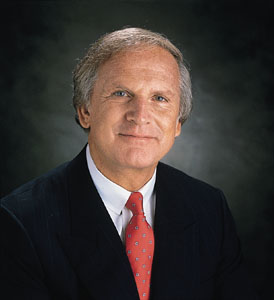 It wasn’t long before Dr. Waitley’s life began to turn around. Better times started with a phone call to his office on a day when his secretary was out sick. Dr. Waitley had been facilitating a seminar on relationships, and an attendee named Susan happened to call. “All she was doing was wanting to find information on a seminar. Susan was cleaning her closet, found an old brochure, and called to see if the program was on.”
It wasn’t long before Dr. Waitley’s life began to turn around. Better times started with a phone call to his office on a day when his secretary was out sick. Dr. Waitley had been facilitating a seminar on relationships, and an attendee named Susan happened to call. “All she was doing was wanting to find information on a seminar. Susan was cleaning her closet, found an old brochure, and called to see if the program was on.”
During their phone dialogue, Dr. Waitley asked his future wife, “Who are you?” She gave her name and Dr. Waitley remembered her. He told her: “’You can’t go to this program because it’s for singles!’” Susan said, “‘I’m sorry, but I am now single again.” Dr. Waitley apologized and met with her after his seminar.
“I courted her for two years,” he says. “She really wanted to be certain that I was as advertised!” Susan was leery of getting involved in another relationship and she was taking a big risk on Dr. Waitley’s self-proclaimed potential. She had two children of her own and came from a very bad marriage, but Susan believed in the Psychology of Winning. They married in May of 1978.
Dr. Waitley’s wake-up call
Although he wrote the book, Dr. Waitley didn’t believe that the Psychology of Winning was good enough to be published. Susan said, “You’re not worried about [whether or not] the program is any good, you’re worried about [whether or not] the author is any good.” Taken aback by her insight, Dr. Waitley replied, “Wait a minute! You’re dealing with my stuff now! You just gave me a wakeup call.” He says of his wife, “She’s a good Christian woman. If you look behind a successful person, and you look to see who the wind was beneath their wings, you might find it was their silent partner.”
Dr. Waitley recorded a segment of the Psychology of Winning audiotapes at a local church. It was passed around several times before it landed in the hand of Earl Nightingale of Nightingale Conant. It was 1976, and Earl Nightingale’s The Single Secret and Acres of Diamonds were the only spoken audio albums in the world. The motivational movement hadn’t yet fully surfaced.
Mr. Nightingale told Dr. Waitley to meet with him and his business partner; however, it took two years for Dr. Waitley to convince Mr. Nightingale’s partner that Psychology of Winning -or POW-would sell. “He didn’t think that the psychology of winning [made sense] because psychology is cerebral and winning seemed like sports,” explains Dr. Waitley. “He said, ‘How can you have a cerebral sport?’ I said, well it’s a play on words. POW is an acronym that came from prisoner of war, as well as being a perception. That’s why POW doesn’t mean prisoner of war-it just means whatever you see it as.”
Since 1978, over 100 million copies of the Psychology of Winning have been sold worldwide.
Developing a winning attitude
 Dr. Waitley explained his philosophy behind Psychology of Winning is pragmatic yet profound. “The Psychology of Winning is a way of living that enables you to understand you don’t have to come in first to win. As long as you’ve done your best, you’ve won, believing that the clay you were given to work with is as valuable as anybody else’s clay. The combination of self-worth and self-trust are the essence of the Psychology of Winning. If you feel you’re worth the effort, you’ll put the effort in and when the effort begins to bear fruit, if you trust the fact that you’re learning from people who have track records, then you’re likely to succeed.”
Dr. Waitley explained his philosophy behind Psychology of Winning is pragmatic yet profound. “The Psychology of Winning is a way of living that enables you to understand you don’t have to come in first to win. As long as you’ve done your best, you’ve won, believing that the clay you were given to work with is as valuable as anybody else’s clay. The combination of self-worth and self-trust are the essence of the Psychology of Winning. If you feel you’re worth the effort, you’ll put the effort in and when the effort begins to bear fruit, if you trust the fact that you’re learning from people who have track records, then you’re likely to succeed.”
Following this logic, your environment shapes your destiny unless you consciously break free from its pervasive grip. Dr. Waitley agrees that “you become that to which you are most exposed. You become a winner by the exposure you give yourself. Read biographies of people who have overcome enormous handicaps.” In learning how to change your environment, Dr. Waitley’s advice is to “look for people who have similar desires and not similar problems.”
He uses the example of people who have recently been fired. “You were just fired from your job. Like everybody else who gets fired, you’re a little upset and you go down to the nearest cocktail lounge to relax yourself. What you want to do is make sure you don’t hang around with other people who just got fired! You want to make sure that the people you meet, or get advice from, are people who have recently got a job or people who have been doing very well.”
Psychology of Winning philosophy in the 21st Century
The serenity prayer (“God grant me the serenity to accept the things I cannot change, the courage to change the things that I can, and the wisdom to know the difference”) inspires Dr. Waitley’s vision for the millennium. His personal take on this truth is “accept the unchangeable, change the changeable, and remove yourself from the unacceptable.” More specifically, Dr. Waitley advises:
- Accept the unchangeable: “The unchangeable is everything that has happened to you up until this minute. If people would accept history as already being there they would not spend so much time rehashing history.”
- Change the changeable: “Changing the changeable is fairly powerful, because the only thing you can change is your response to what just happened. I can change my response to what you do and say. I can also change the way I anticipate what’s going to happen and then change what I do. I can change the way I view the future. But I cannot change what you do. So, before I do anything, I stop for a minute and asked myself, ‘Is this going to further myself toward my long-term goals? Is this the right thing to do?’”
- Remove yourself from the unacceptable: “It means that you have to change your environment. If you’re in a dead-end job – you’re out of there! What I do if there’s obnoxious people around [is] I move. I don’t get into a contest to make them or myself more miserable. A great way to retain dignity and composure is to remove yourself from the situation.”
###
To purchase The Psychology of Winning in the 21st Century, visit Dr. Denis Waitley’s official website — The Waitley Institute
Related Sites:

 Philippe Matthews Show Guru Advice, Author Reviews, Tech Reviews, Entertainment News
Philippe Matthews Show Guru Advice, Author Reviews, Tech Reviews, Entertainment News


